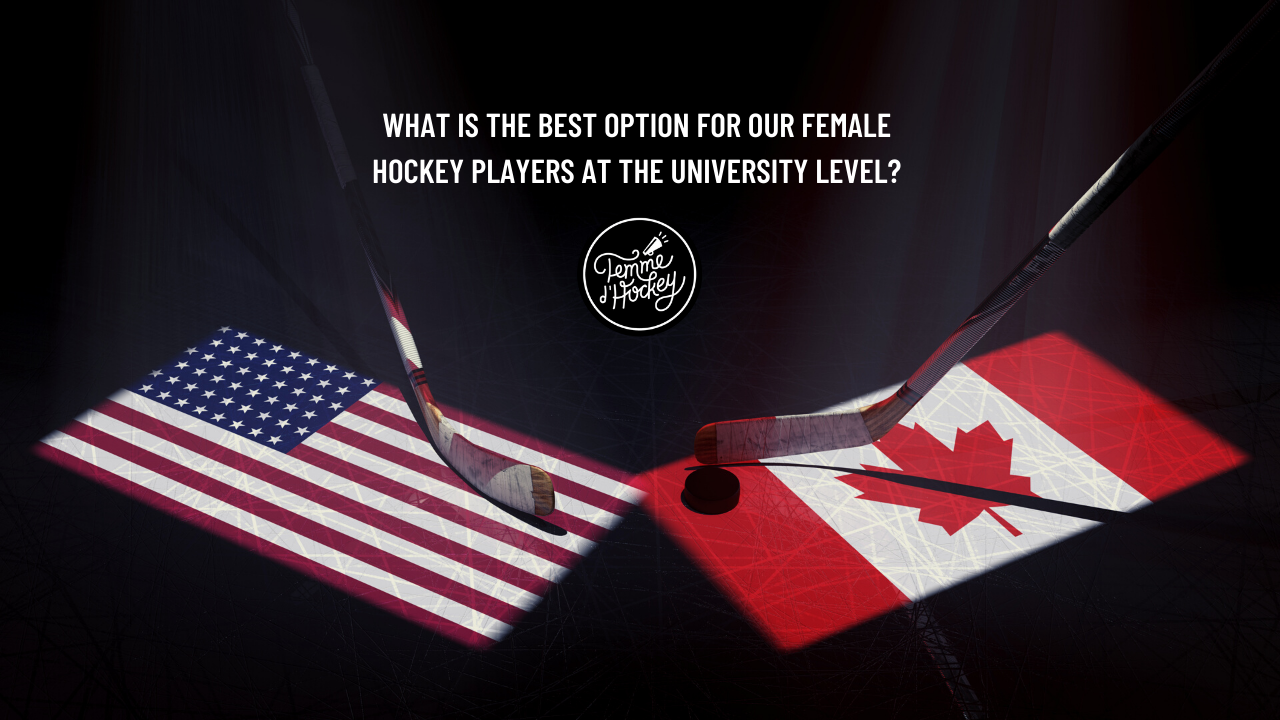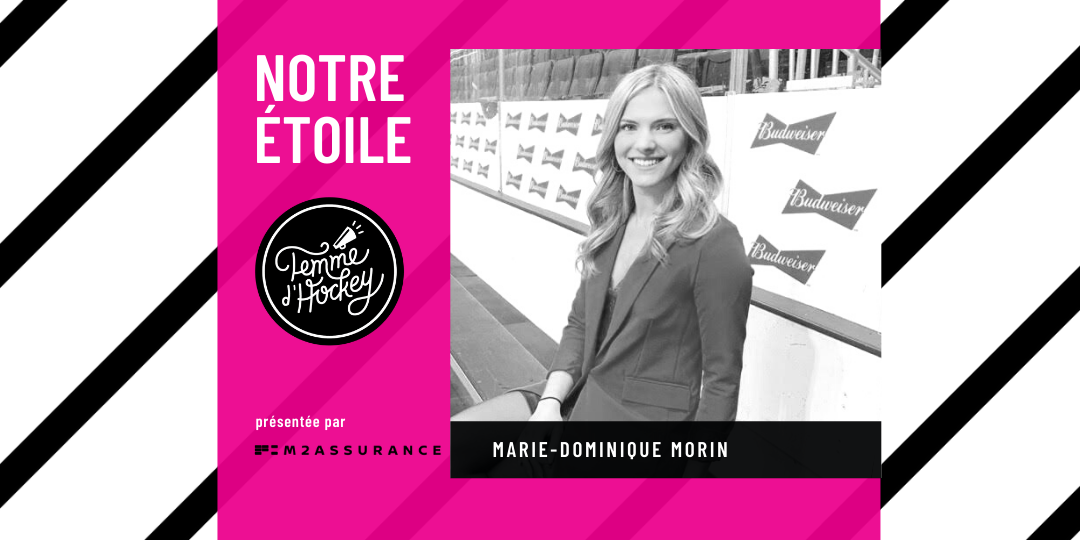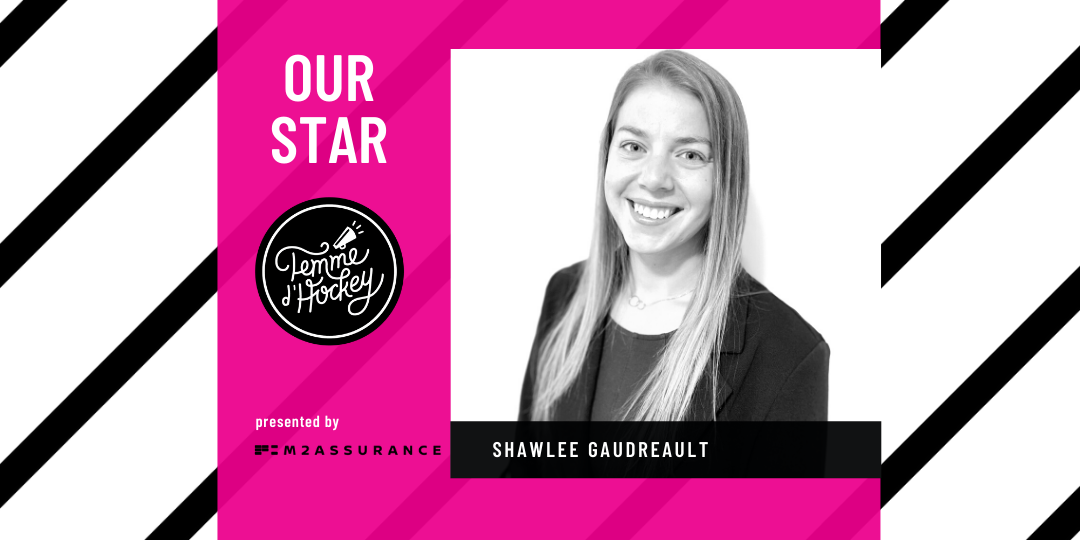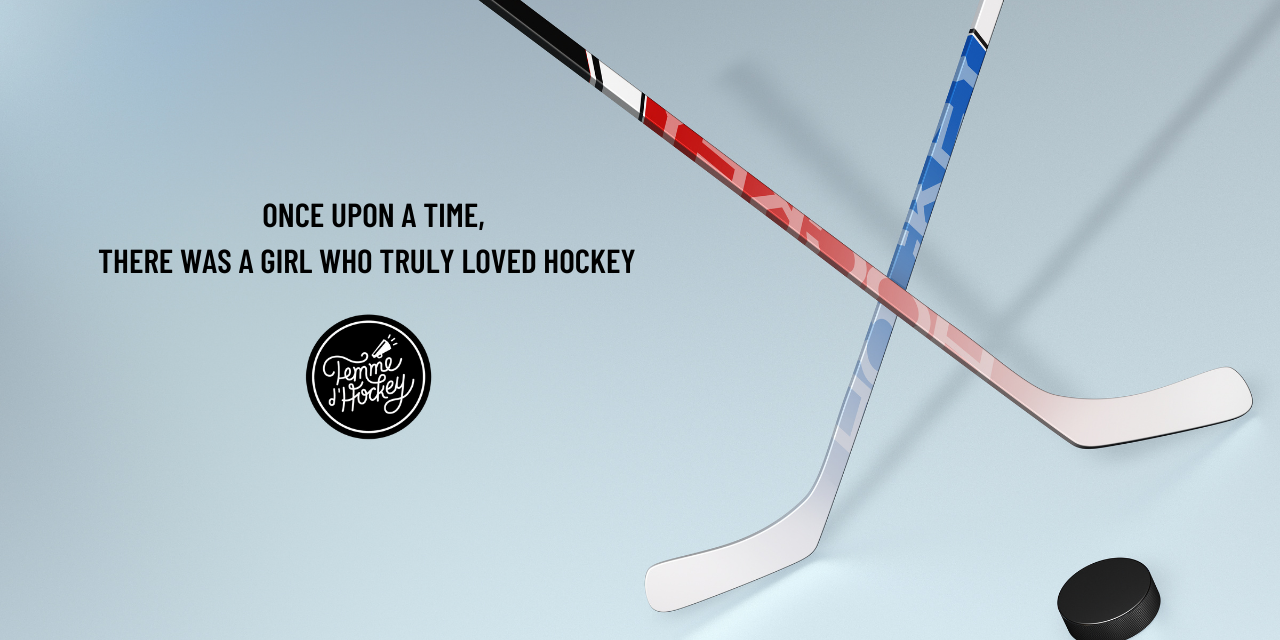We are currently in the middle of the registration period for university. Many of our Quebec hockey players must choose the institution in which they will pursue their sports career. This decision is not to be taken lightly, as it could have a strong impact on the future of our national sport. The issue at stake here: the exodus of players to American universities.


This issue is at the heart of the concerns of Isabelle Leclaire, the head coach of the Université de Montréal Carabins hockey program.
“It’s one of my main concerns. I really want our hockey players to stay at home. I am really dedicated to this issue. In fact, I am involved in the hockey sub-committee for U Sports,” she says.
The university exodus is a subject that many Canadian university hockey leaders discuss on a daily basis,” she said. There is work to be done in education to bring this reality to light.
Is the grass really greener elsewhere?
“People don’t know what we do here. For a long time, it was considered more expensive to stay here than to go abroad, but that’s not the reality. Our hockey players can receive bursaries from the Fondation de l’athlète d’excellence du Québec (FAEQ), as well as a full scholarship for their studies. They even receive tax credits from the government.”
The coach also adds that the level of play is not superior to the United States. The games are mostly close when a university institution plays a team from our neighbors to the south.
On this topic, Leclaire lists some important numbers. “According to surveys conducted by the FAEQ, the satisfaction rate for American universities is around 70-75%, while for Quebec or Canadian universities, the percentage is around 95%. Here, it’s student sports. Over there, it’s a business”.


An exodus that hurts
According to figures reported by the FAEQ a few years ago, 75% of athletes who studied in the United States would not return to Quebec five years after graduation. The Lachine native finds this shocking.
“It’s a huge loss, yes for the sport, but when you think about it in a broader way, there is an important human connection in there. These are people who are going to leave, who are going to meet someone, who may have children and who will find an internship or a job. They won’t come back here. It’s a much bigger loss than you think because there are repercussions on society. We’re losing women who might have the capacity to fill important jobs.”
The human side of sports with a capital H
Human relations are important in university sports and coach Leclaire makes it a duty. In the locker room of his University of Montreal Carabins team, it’s written:
“To be champions, we must first be winners.”
For Isabelle, the term winner takes its meaning from behavior, values and resilience. Paired together, the chances of being a champion increase. In defeat, it’s also possible to be satisfied as the student-athlete acts like a winner.
Isabelle Leclaire’s paycheck is not in money, but in progress. She likes to see her hockey players succeed after the fact. The hockey woman is very grateful. She believes that university hockey is not only played on the ice. Parents are also an integral part of the team. The Carabins are not only a university hockey team, but a big family.
A tightly woven team
A sense of belonging is one of the valuable elements of university sports. At one point, Alexandre Laganière, who worked with the Blue soccer team, had the Carabins bus filled twice to bring varsity athletes to the deciding game in the final against McGill University.
“I will always remember that moment. To me, it feels like it was just yesterday. The atmosphere was amazing and our crowd was clearly dominant in the stands. It really helped us. We won the provincial championship that night!”


About the Centre 21.02 created by Danièle Sauvageau
In the eyes of Isabelle Leclaire, Centre 21.02 is a major step forward. “This type of training center has proven itself in the past. Beyond all that, the university girls finally have an avenue for the next step in their development. They have a place to continue their development, which is great. It’s a nice addition to be able to build our network of players who could be on a professional team one day. Having one location.

We need to keep sharpening our skates!
There is still a lot of work to be done to reduce the exodus of Canadian players to the United States. Playing for an American university is prestigious, but when comparing the two models, the garden is not necessarily greener in the United States. The growing popularity and visibility of our Canadian players and this year’s Winter Olympics may help the cause. Let’s hope so, as well as the gold medal!
Tristan Mac
Tristan, étudiant en Journalisme à l’UQAM, est un grand passionné de hockey et souhaite pouvoir véhiculer les valeurs humaines du sport. Impliqué dans le hockey féminin depuis 2018, il est à la description des matchs des équipes de hockey du Boomerang du Cégep André-Laurendeau et travaille aussi dans le monde des médias.
RELATED POSTS
22 April 2022
ÉTOILE FEMME D’HOCKEY: SHAWLEE GAUDREAULT
27 March 2022




